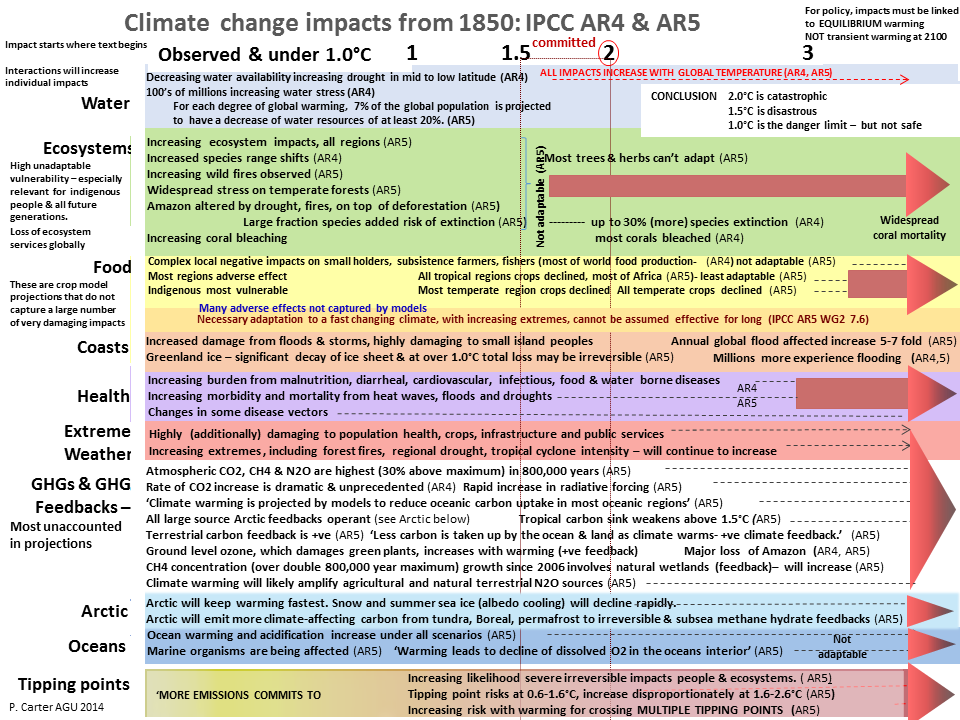Global Catastrophe-Collapse
Since the 2018 IPCC 1.5C Report some top scientists have been publishing stern warnings that we face global climate catastrophe, collapse of essential ecosystems, collapse of world society or of civilization.
The recent (Jan 2020)
most strongly worded baked by a large number of experts (Underestimating the Challenges of Avoiding a Ghastly Future) warns and advises that this dire situation places an extraordinary responsibility on scientists to speak out candidly and accurately when engaging with government, business, and the public. The paper through all its dire evidence is a call on scientists to be forthright on the existential to survival of civilization, the human race and most life.
The authors cover predictions of a ghastly future of mass extinction, declining health, and climate-disruption upheavals (including looming massive migrations) and resource conflicts this century.
They urge that the gravity of the situation requires fundamental changes to global capitalism, education, and equality, which include inter alia the abolition of perpetual economic growth, properly pricing externalities, a rapid exit from fossil-fuel use, strict regulation of markets and property acquisition, reigning in corporate lobbying, and the empowerment of women. Oddly they don`t include termination of fossil fuel subsidies or explicit charging central corporate global polluters the cost of their pollution.
We summarize the state of the natural world in stark form here to help clarify the gravity of the human predicament. We also outline likely future trends in biodiversity decline (Díaz et al., 2019), climate disruption (Ripple et al., 2020), and human consumption and population growth to demonstrate the near certainty that these problems will worsen over the coming decades, with negative impacts for centuries to come. Finally, we discuss the ineffectiveness of current and planned actions that are attempting to address the ominous erosion of Earth's life-support system.
It is therefore incumbent on experts in any discipline that deals with the future of the biosphere and human well-being to eschew reticence, avoid sugar-coating the overwhelming challenges ahead and “tell it like it is.” Anything else is misleading at best, or negligent and potentially lethal for the human enterprise at worst.
Underestimating the Challenges of Avoiding a Ghastly Future

